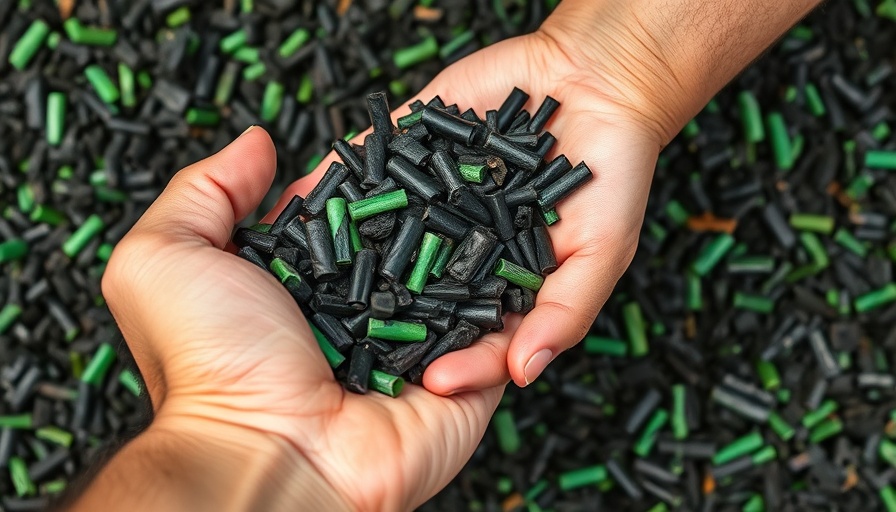
The Hidden Dangers of Rubber Mulch: What Most Gardens Won't Tell You
As homeowners become more vigilant about their gardening practices, the allure of rubber mulch lures many in with promises of low maintenance and a tidy aesthetic. However, before you mulch, you might want to consider what is happening beneath that colorful façade. While it may seem like a perfect covering for your flower beds, the reality is that rubber mulch can pose significant risks to both your soil health and long-term gardening success.
What is Rubber Mulch Made Of?
Rubber mulch is essentially made from recycled tires, crafted through a process that removes all steel components and shreds the rubber into small bits. Sold in an array of colors, this product attracts many gardeners who wish for a long-lasting option that won’t decompose like organic materials. However, the key question remains: What are the hidden chemicals contained in those shredded tires?
Unpacking the Problems: Soil Damage and Pest Attraction
Using rubber mulch may initially seem like an innovative solution to garden maintenance woes. Yet, studies have shown that rubber mulch can significantly damage underlying soil health. For one, it can hinder water penetration and soil aeration. Over time, this can create an inhospitable environment for essential soil microorganisms and plant roots.
Moreover, rubber mulch often attracts pests, including ants and rodents. These creatures find the rubber material appealing as a nesting option, leading to additional problems that can dramatically impact your garden's vitality. Ultimately, the supposed benefits of reduced maintenance are overshadowed by the potential for increased pest-related issues.
The Long-Term Risks to Human Health
Perhaps the most alarming aspect of rubber mulch is its potential threat to human health. The chemicals used to process tires, including heavy metals and other toxic substances, can leach into the soil, particularly during heavy rains. These contaminants can subsequently enter the food chain via edible plants grown in contaminated soil, raising serious concerns about potential long-term effects on human health.
Why Organic Mulch is the Way to Go
Shifting away from rubber mulch opens the door to the myriad benefits of organic options such as wood chips, shredded leaves, or straw. Organic mulches break down naturally, enriching the soil with nutrients while supporting beneficial organisms that contribute to long-term plant health. Furthermore, they help retain moisture and regulate soil temperature, creating a thriving environment for your plants.
Actionable Insights: Making the Right Choice
As more homeowners delve into DIY gardening projects, it’s crucial to stay informed about materials used in your landscape. Here are steps you can take to enhance your garden's health:
- Choose organic materials for your mulching needs. They offer valuable nutrients and improve soil over time.
- Evaluate how different materials will affect the ecosystem in your garden. Consider whether they will support or hinder plant growth.
- Stay aware of the potential health implications that may arise from synthetic choices.
Planning for a Vibrant Garden
Your garden deserves materials that nurture it rather than harm it. The choice between rubber and organic mulch could determine the resilience of your plants and the quality of your yields. So why gamble with harmful substances when nature offers a plethora of safe options? Invest in your garden’s health and watch it flourish with the right materials.
If you’re ready to elevate your gardening game and learn more about sustainable practices that will enhance your outdoor space, consider exploring local workshops or engaging with gardening clubs in your community. They will not only provide valuable insights but offer connections to local resources that can help you implement your vision.
 Add Row
Add Row  Add
Add 




Write A Comment